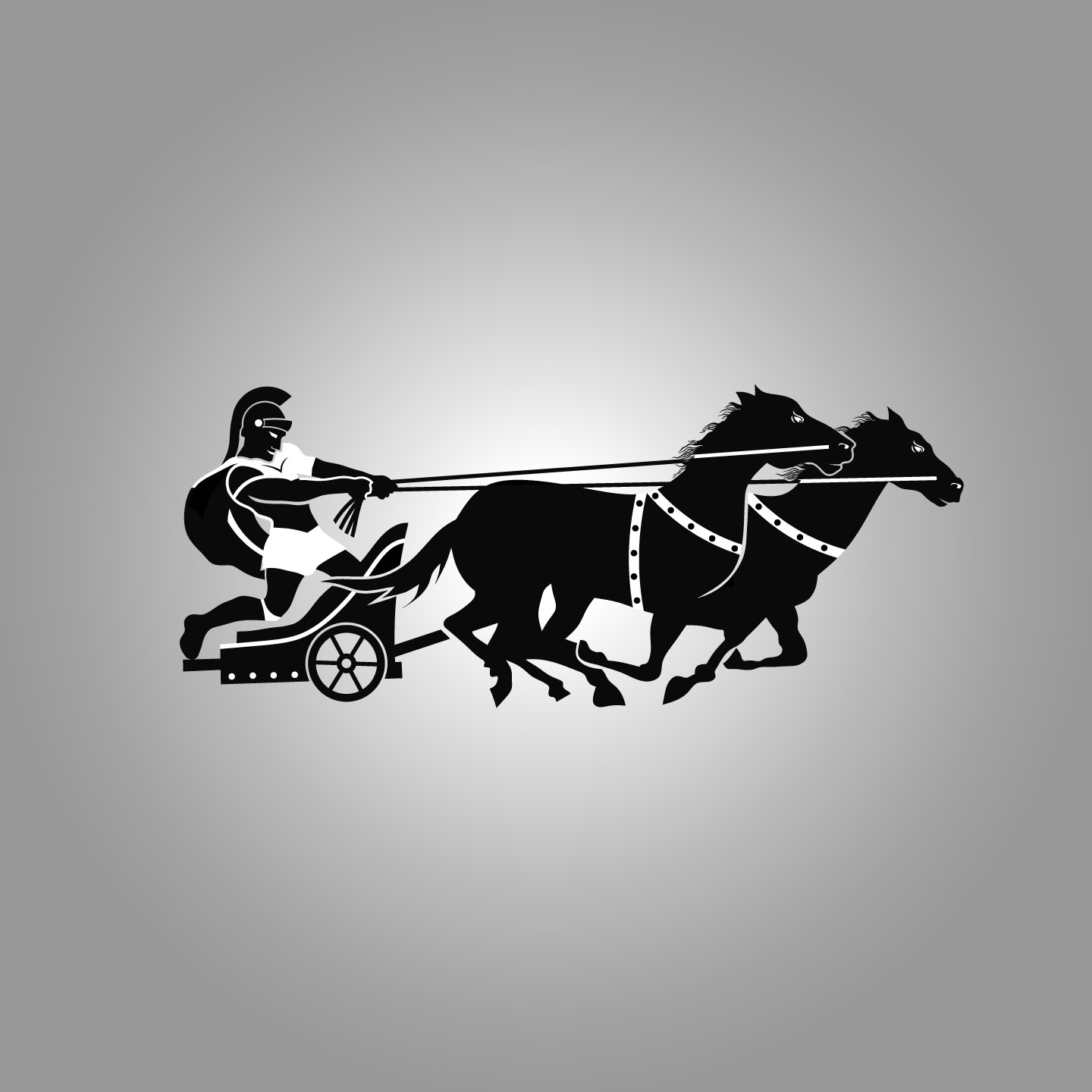You have two jet engines in your soul: anger and desire. What are you supposed to do with them? Should you try to shut off the engines, or should you try to aim them in a constructive direction? This is a question that Western civilization has been grappling with for centuries, and Christianity is a part of that conversation.[1]
The image of the two jet engines comes from Plato’s Republic (book 4, 439b), where he compares the soul to a chariot with two horses (ok, they’re not actually jet engines): θυμός (spiritedness or anger) and ἐπιθυμία (desire). These horses are controlled by the charioteer, which is reason. Ideally both horses are under the control of reason, so that the chariot goes in the right direction.
This is a very different ideal than that of the Stoics, who see the passions as diseases, which need to be eliminated. The Stoics identify four main passions: λύπη (distress), φόβος (fear), ἡδονή (pleasure), ἐπιθυμία (desire). Distress is the experience of a present evil, while fear is the anticipation of a future evil. Similarly, pleasure is the experience of a present good, while desire is the anticipation of a future good. The reason these passions are problematic for the Stoics, is that the only thing that is truly good, according to the Stoics, is virtue, and the only thing that is truly evil is vice. So, if you judge anything else to be good or evil, you are in error. For example, if you hit your thumb with a hammer, the feeling of the physical impact is neutral, but as soon as you make the judgment that this is bad for you, it becomes the passion of λύπη (distress or pain). The goal of a Stoic spirituality, then, is to stop making these wrong judgments and in this way to get rid of passions.
So, which is the better path? If we turn to the early church, we find that the church fathers come down squarely on both sides of the question! And I don’t just mean that some church fathers are Platonists in their spirituality, while others are Stoics, but you can often find both tendencies in the same fathers. In this series of blog posts, I am going to explore these two spiritualities in the early church and in Lutheran theology. I am going to focus on anger and desire as the two main passions, since that pair was adopted by a number of church fathers as the best way to categorize passions.
But before delving into this question, you might consider which path you think is better. Should we Christians attempt to empty ourselves of anger and desire as much as possible, or should we harness anger and desire to steer them in the right direction?
End Notes
[1] See Robert L. Wilken, “Maximus the Confessor on the Affections in Historical Perspective,” in Asceticism, ed. Vincent L. Wimbush and Richard Valantasis (New York & Oxford: Oxford University Press, 1995), 413–414.



Leave a Reply
You must be logged in to post a comment.